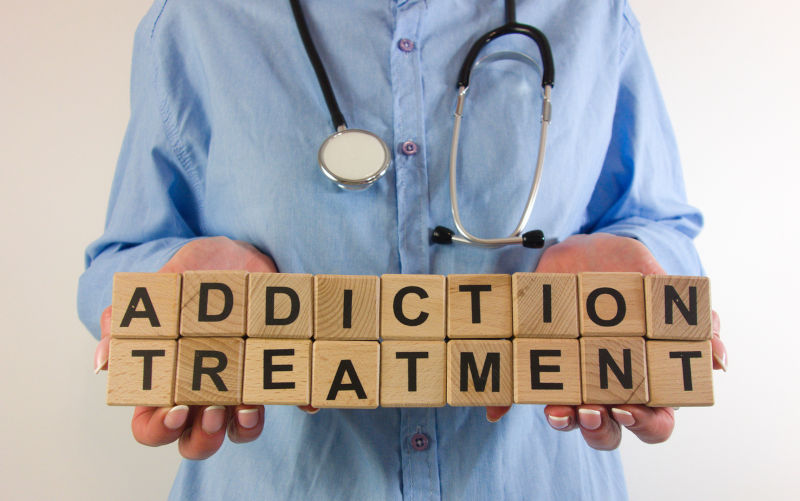Treatment and support services for gambling harm
May 7, 2023
For someone who is experiencing gambling harm, either due to their own gambling or someone else’s gambling, finding a quality service is often difficult.
__
People with lived experience regularly tell us they struggle to find independent and quality information about what is on offer and the likely outcomes of any referral.
The harms from gambling are diverse and experienced on a spectrum - people can move from low to moderate to severe (otherwise known as risky gambling). Its critical when considering treatment services for gambling that the spectrum of harm is considered and the range of possible interventions which might include preventing further escalation, reducing the current harm or even addressing the risk of relapse. By moving people down the harm continuum, we decrease the social and health costs associated with gambling for individuals, families, workplaces, communities and governments.
Gambling harms can be associated with mental disorders, physical health problems, family violence and issues, and poverty so treatment must be well integrated with services that deal with health and social problems. There is also the impact of one person’s gambling on others around them which can also necessitate support services. Of course, all interventions need to be tailored to culture with Indigenous and culturally and linguistically diverse populations requiring specific support. In some communities, the shame and stigma attached to experiencing harm, or even gambling at all, can be significantly higher in various CALD communities.
Treatment for gambling harm is approached in a number of ways including:
- Financial and therapeutic counselling (often lead by Gamblers Help teams)
- Online self-help programs
- Cognitive behaviour therapy (the most globally researched with the best results)
- Gamblers Anonymous Groups that were modelled of Alcoholics Anonymous
- Medications such as opioid antagonists and even SSRIs
Each jurisdiction has different services for people seeking treatment for gambling
harm. In the Northern Territory, Australian Capital Territory and South Australia, the major contractor is Relationships Australia, in Tasmania it is Anglicare, in Western
Australia it is CentreCare, in Victoria it is the Victorian Responsible Gambling Service (who
have contracts with local community organisations to run the service), the Queensland
and New South Wales models are similar to that of Victorias.
Gambling harm does not have a sector supporting those with the impact of harm from gambling. Instead, we have a smattering of services including the nationwide 24/7 gambling help online service run by Turning Point Addiction research and education centre, a helpline which is also run by Turning Point, and in person and free and confidential gambling support services run across Australia. Clearly the comorbidities between gambling and alcohol and other drugs have to date made the AOD treatment sector an important provider for gambling help services.
People may also seek help from generalists including GPs, mental health professionals, community health workers and in some cases allied health professionals when seeking help. However, these groups are unlikely to have ever received dedicated gambling training. Similarly, crisis services such as those run by Lifeline and Beyondblue also dont receive specialist training in gambling harm.
Early and preventative interventions may be as important as more intensive treatment services. In Australia it is estimated that as few as 10 per cent of those experiencing harm have sought help. If we take into consideration that risky gamblers or those experiencing extreme harm only make up 15-18 per cent of the harm being experienced (with 82-85 pre cent low and moderate risk gambling), then there are not many people accessing services due to the shame and stigma associated with gambling harms.
Despite promising findings of studies looking at various treatments of gambling harm, the research still lags far behind the research conducted on alcohol and drug treatment. The research tells us that globally, treatment provision at a system level is sparse and inadequate, even in well-resourced countries like Australia.
While many people report very positive experiences from their treatment, generally treatment and support services for those experiencing gambling harm is still developing, under resourced and under utilised, so is the investment in prevention. The gambling products and promotions associated with high levels of gambling harm such as poker machines, inducements to gamble from bookmakers, no mandatory limit settings are all still supported by governments. This establishes a broader environment that increases the prevalence of gambling harm, and sadly, it enables gambling businesses to continue to profit in Australia more than anywhere else in the world.
In summary, not only do we need a national strategic approach to gambling harm treatment, but it needs to be integrated into the broader public health system, especially given the potential for comorbidities. It also should be properly evaluated, including providing a lived experience perspective on how accessible and effective the current treatment options are for different groups of gamblers, their families, workplaces and communities.
Our 3 recommendations are:
-
Provide ongoing regular evaluation and improvement of the services available to people seeking help for gambling issues.
-
Provide all medical and health professionals (including helpline operators) with an up to date set of guidelines and referral options.
-
Provide an independent gambling harm national services directory to enable those seeking help to readily access quality and independent information and services.
